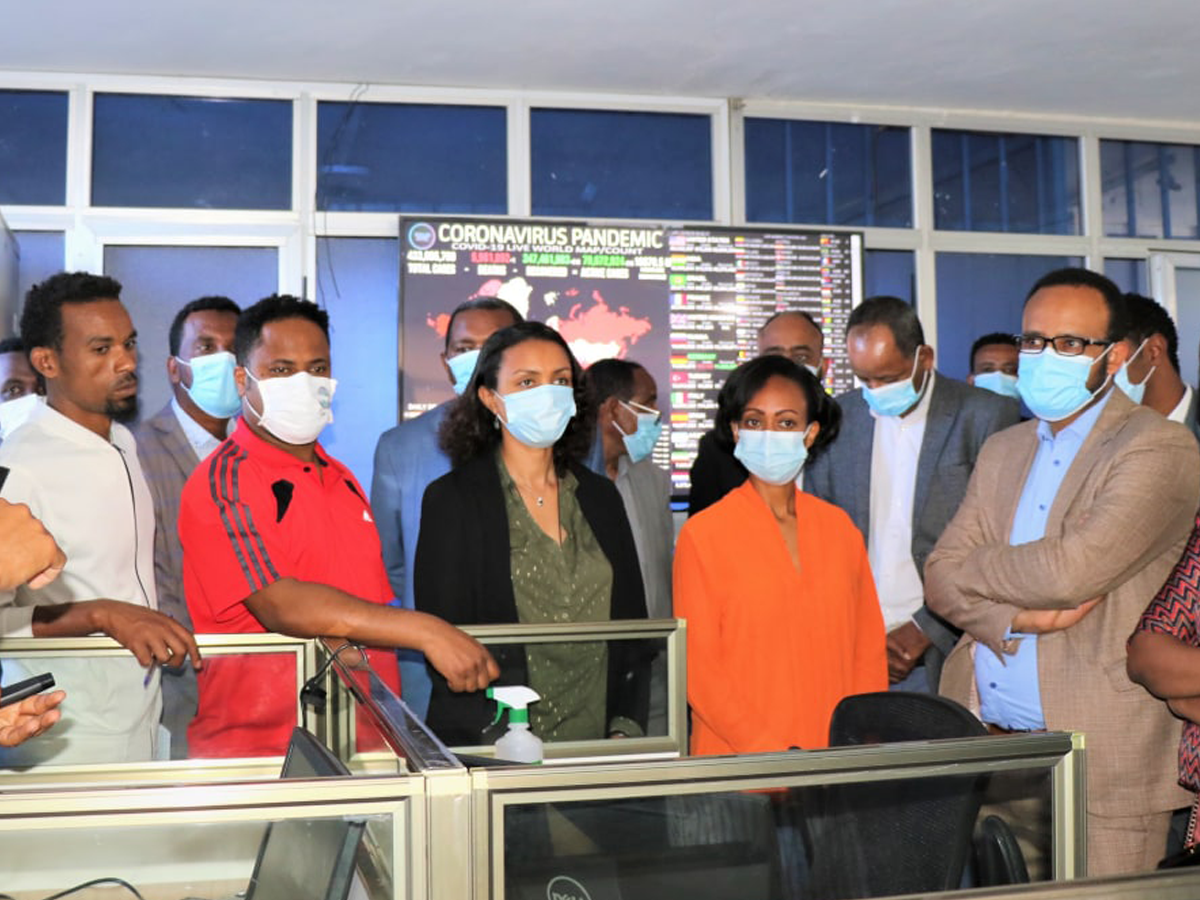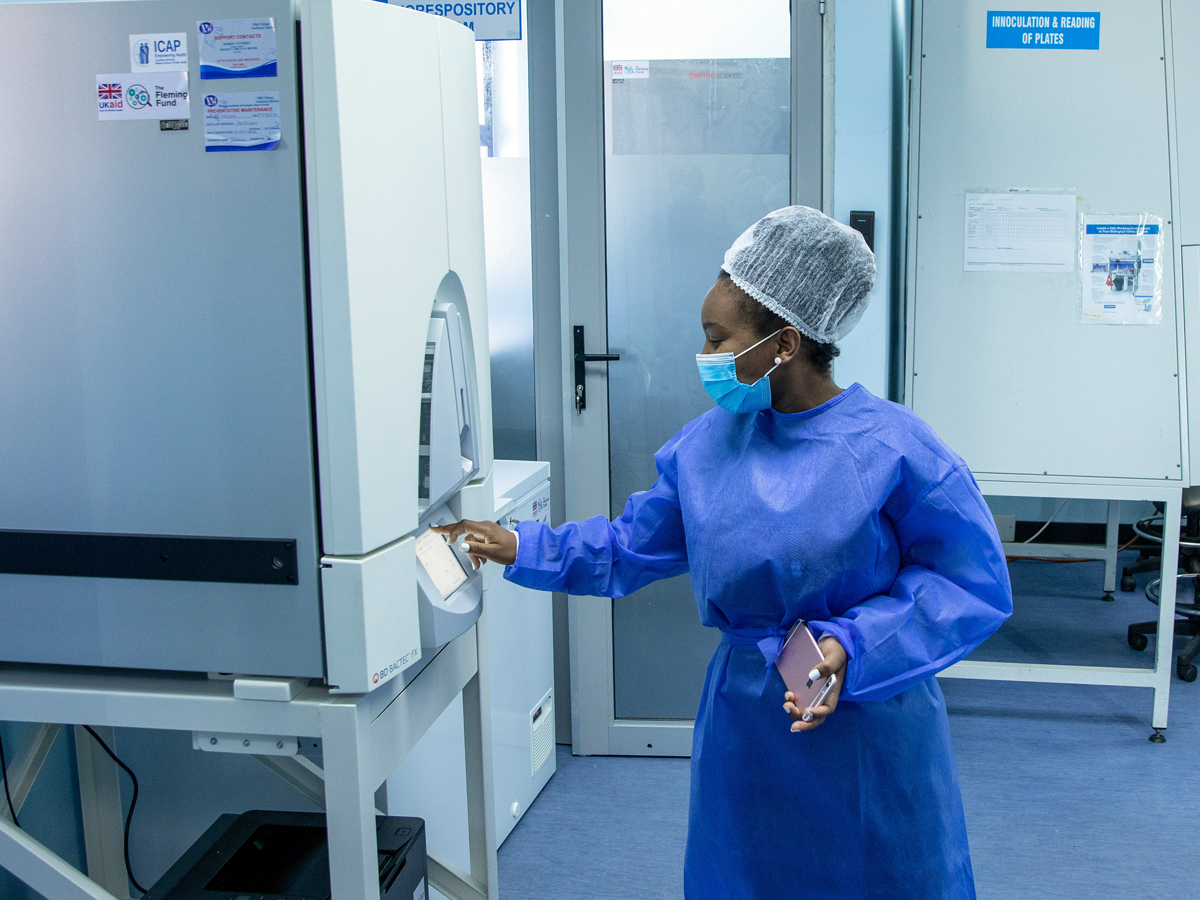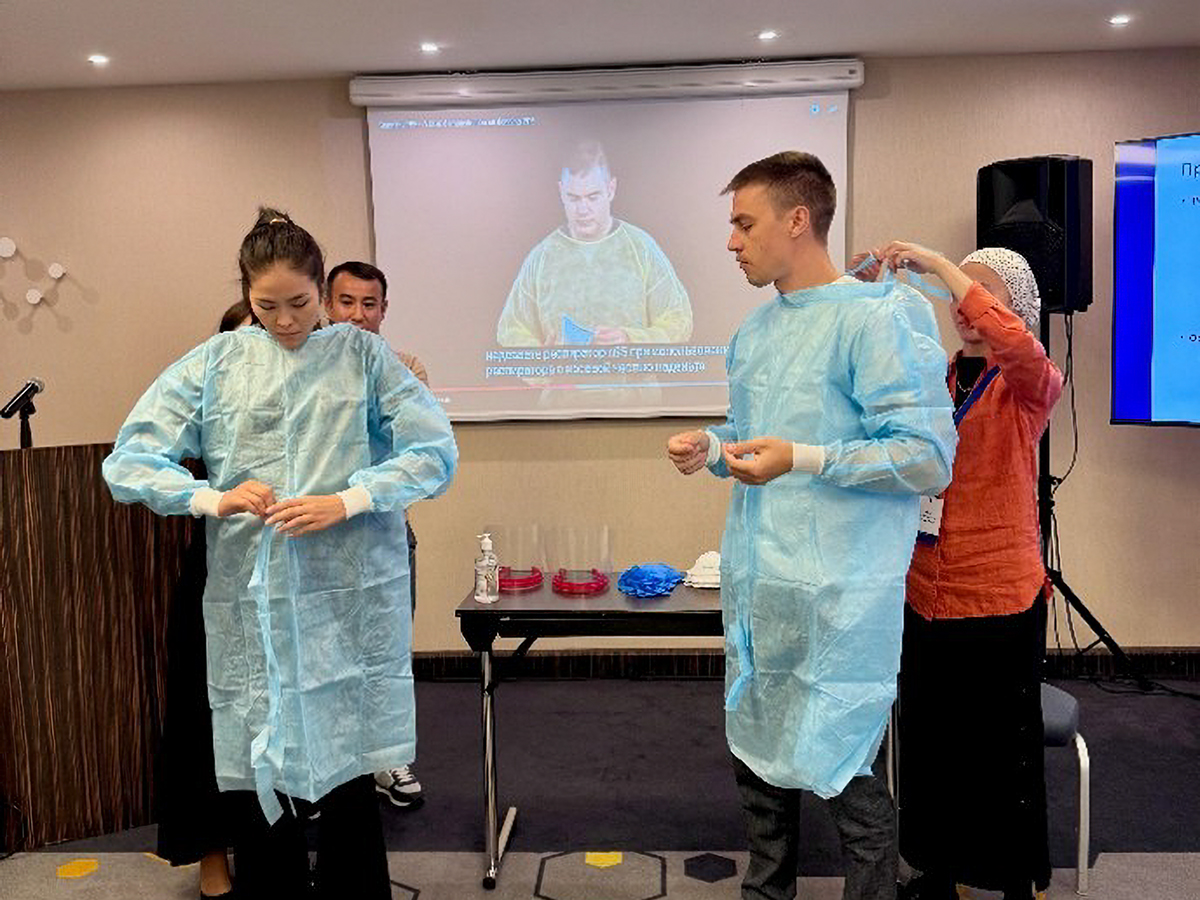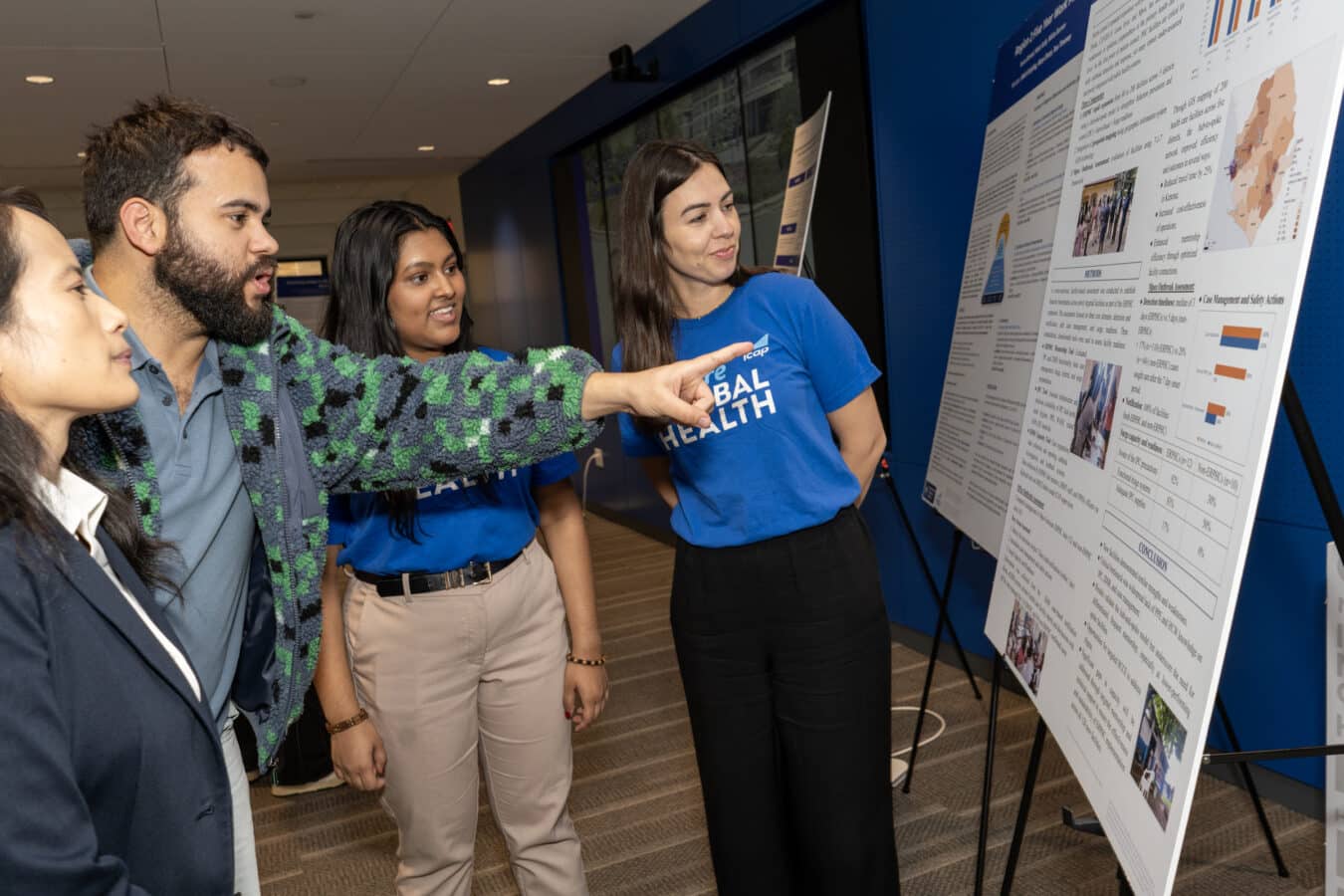When the COVID-19 pandemic emerged in Ethiopia in March 2020, it signaled the country’s need for a public health system that could respond swiftly to emerging disease threats.
In April 2020, with support from the President’s Emergency Plan for AIDS Relief (PEPFAR) through the Centers for Disease Control and Prevention (CDC), ICAP supported the development of 13 Public Health Emergency Operation Centers (PHEOCs) to coordinate Ethiopia’s public health emergency response.
“The PHEOCs, established in each administrative region in the country, under the flagship’ Coronavirus Aid, Relief, and Economic Security Act’ are centers equipped to monitor, coordinate, and handle emerging and re-emerging public health threats in Ethiopia,” said Zenebe Melaku, MD, ICAP’s country director in Ethiopia. “These centers have enabled Ethiopia to deal with the COVID-19 pandemic and repositioned the country to handle other disease outbreaks.”
For the past two years, in collaboration with the Ethiopian Public Health Institute (EPHI) and the Ethiopian Regional Health Bureaus (RHBs), ICAP provided technical assistance in developing, validating, and printing a national handbook and other PHEOC operational materials to guide PHEOC management. ICAP staff also helped develop a standardized PHEOC/ Information Management System training curriculum and trained over 100 experts who work at the PHEOCs.
At a national workshop EPHI organized to launch PHEOC operational materials on November 12, 2022, EPHI recognized ICAP for the organization’s active role and outstanding contribution to establishing, strengthening, and ensuring the sustainability of the national and regional PHOECs.
Aschalew Abayneh, MPH, EPHI deputy director general, and Messay Hailu, MPH, PhD, EPHI director-general, presented a certificate of recognition to ICAP in Ethiopia at the workshop, which was attended by leaders from EPHI, RHB, CDC, the World Health Organization, and ICAP in Ethiopia.
“With ICAP support, EPHI has been able to strengthen disease surveillance and response by developing the Ethiopian public health response workforce,” said Abayneh. “ICAP’s role throughout the process of establishing a robust and effective public health emergency management system in Ethiopia has been remarkable,” he added.
So far, EPHI has used the PHEOCs to respond efficiently to ongoing public health threats in Ethiopia, such as cholera, malnutrition, measles, and COVID-19. ICAP will continue to support EPHI by strengthening the capacity of the PHEOCs by ensuring their functionality and sustainability in responding to public health and humanitarian emergencies.
About ICAP
A major global health organization that has been improving public health in countries around the world for nearly two decades, ICAP works to transform the health of populations through innovation, science, and global collaboration. Based at Columbia Mailman School of Public Health, ICAP has projects in more than 40 countries, working side-by-side with ministries of health and local governmental, non-governmental, academic, and community partners to confront some of the world’s most significant health challenges. Through evidence-informed programs, meaningful research, tailored technical assistance, effective training and education programs, and rigorous surveillance to measure and evaluate the impact of public health interventions, ICAP aims to realize a global vision of healthy people, empowered communities, and thriving societies. Online at icap.columbia.edu.








